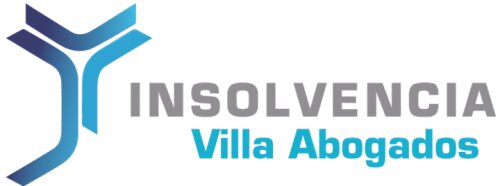Best Probate Lawyers in Bogota
Share your needs with us, get contacted by law firms.
Free. Takes 2 min.
List of the best lawyers in Bogota, Colombia
About Probate Law in Bogota, Colombia
Probate law in Bogota, Colombia refers to the legal process that oversees the distribution of a deceased person's estate. The process ensures that the assets, debts, and final wishes of the deceased are handled according to Colombian law and the instructions set out in a valid will, if one exists. This may involve authenticating a will, identifying heirs, appraising the value of the estate, settling taxes and debts, and distributing remaining property to beneficiaries. The Colombian Civil Code and other related statutes guide these proceedings, with local notaries and courts playing significant roles depending on whether the process is amicable or contentious.
Why You May Need a Lawyer
Probate procedures in Bogota can be complex, especially for individuals unfamiliar with Colombian legal requirements or the Spanish language. Seeking legal advice is essential in several common situations:
- When there is uncertainty about the validity of a will
- If there is no will and heirs must be determined according to the law
- When heirs or beneficiaries disagree on the distribution of assets
- To address substantial estate debts or liabilities
- When minors or vulnerable adults are involved
- If there is property located in different regions of Colombia or abroad
- For non-Colombian citizens inheriting property in Colombia
- To ensure correct compliance with inheritance tax obligations
A lawyer can guide you through every step, protect your rights, and minimize delays or conflicts.
Local Laws Overview
Probate in Bogota is regulated primarily by the Colombian Civil Code and related legislation. Key aspects include:
- Testate and Intestate Succession - Succession may follow a will (testate succession) or, if no valid will exists, the rules of intestate succession, distributing assets to legitimate heirs detailed in the law.
- Minimum Forced Heirs (Herederos Forzosos) - Colombian law protects certain heirs, such as children, spouse, parents, with a mandatory share of the estate that cannot be circumvented by will except under specific situations.
- Notarial vs Judicial Probate - If there is agreement among heirs, probate can be completed before a notary through a process called "Sucesión Notarial." If disputes exist, the matter must proceed through civil courts.
- Inheritance Tax (Impuesto de Ganancias Ocasionales) - Beneficiaries typically face a capital gains tax on inherited assets; the process requires proper valuation and reporting.
- Documentation and Official Translation - Foreign documents must often be legalized and translated into Spanish for use in Colombian proceedings.
- Time Limits - Probate can begin immediately after death; however, strategic timing may be advisable to avoid legal or tax complications.
Frequently Asked Questions
What is probate in Bogota, Colombia?
Probate is the legal process by which a deceased person’s estate is managed, including the validation of a will, payment of debts and taxes, and division of assets among heirs and beneficiaries according to local laws.
Do I need a lawyer to initiate probate in Bogota?
While not strictly required for all cases, legal representation is highly recommended, especially in situations with disputes, foreign elements, or complex assets.
What happens if there is no will?
If there is no valid will, Colombian intestate succession laws apply. The estate is distributed among heirs in a specific order: spouse or partner, children, parents, and other close relatives.
Can foreigners inherit property in Bogota?
Yes, foreigners can inherit property in Colombia, but may face additional regulatory and tax considerations. Legal guidance helps prevent costly mistakes.
What is a "forced heir"?
A forced heir (heredero forzoso) is someone who, by law, is entitled to a portion of the deceased’s estate. In Colombia, this typically includes spouses, children, and, in some cases, parents.
How long does probate take?
Probate timelines vary. Uncontested notarial processes may be resolved in a few months, while court procedures can take one year or more, particularly if disputes or complex assets are involved.
Are there taxes on inherited assets?
Yes, there is an inheritance tax known as "Impuesto de Ganancias Ocasionales" on inherited assets, calculated on the net value after debts are settled.
What documents are required to start probate?
Common requirements include the death certificate, identity documents, will (if any), list and valuation of assets, and proof of relationship to the deceased.
Can probate be done outside court?
If all heirs agree and there are no disputes, the process can be completed at a notary's office, streamlining the procedure.
What if an heir lives abroad?
Heirs living abroad can participate through powers of attorney and properly legalized documents, but may need certified translations and legal representation in Colombia.
Additional Resources
For further information and official guidance on probate matters in Bogota, consider the following resources:
- Superintendencia de Notariado y Registro - The government authority overseeing notarial processes, including probate.
- Colombian Bar Association (Colegio de Abogados) - Offers legal professional directories and guidance.
- Local Notaries - Notarial offices can provide information on amicable probate processes and documentation requirements.
- Civil Courts of Bogota - Handle contentious probate proceedings and can provide procedural information.
- Colombian Ministry of Justice - Publishes legal frameworks and updates related to inheritance laws.
Next Steps
If you require legal assistance with probate in Bogota, Colombia:
- Collect all pertinent documents such as the death certificate, wills, property titles, and identification for all interested parties.
- Consult a qualified local attorney who specializes in probate and inheritance law.
- If all heirs are in agreement, consider initiating an amicable probate through a local notary to expedite the process.
- For contentious cases, prepare for judicial proceedings by organizing all evidence and potential claims.
- Stay informed about tax duties and deadlines to avoid unnecessary penalties.
- Use official resources for guidance and regularly check for updates to probate procedures.
Remember, each case is unique and early legal guidance can help prevent costly mistakes, ensure compliance with local laws, and protect your rights as an heir or beneficiary.
Lawzana helps you find the best lawyers and law firms in Bogota through a curated and pre-screened list of qualified legal professionals. Our platform offers rankings and detailed profiles of attorneys and law firms, allowing you to compare based on practice areas, including Probate, experience, and client feedback.
Each profile includes a description of the firm's areas of practice, client reviews, team members and partners, year of establishment, spoken languages, office locations, contact information, social media presence, and any published articles or resources. Most firms on our platform speak English and are experienced in both local and international legal matters.
Get a quote from top-rated law firms in Bogota, Colombia — quickly, securely, and without unnecessary hassle.
Disclaimer:
The information provided on this page is for general informational purposes only and does not constitute legal advice. While we strive to ensure the accuracy and relevance of the content, legal information may change over time, and interpretations of the law can vary. You should always consult with a qualified legal professional for advice specific to your situation.
We disclaim all liability for actions taken or not taken based on the content of this page. If you believe any information is incorrect or outdated, please contact us, and we will review and update it where appropriate.











